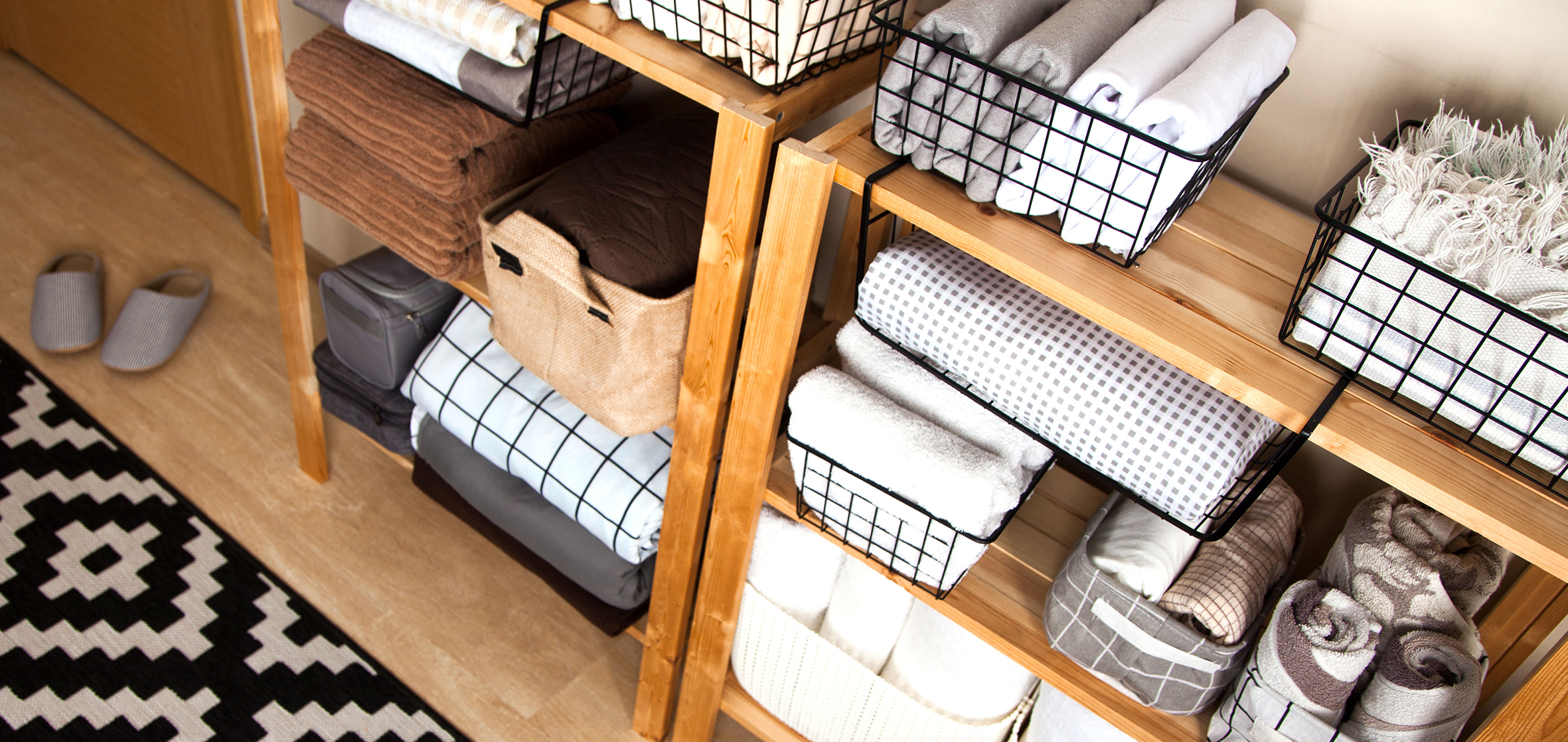Keeping a well-organized and clutter-free home is essential for a peaceful and stress-free life. In a bustling city like London, where space is often limited, it becomes even more important to have effective home organization and decluttering strategies.
Whether you live in a small apartment or a spacious house, maintaining order and tidiness in your living space can greatly enhance your quality of life. In this guide, we will explore the reasons why home organization and decluttering matter in London and provide practical tips and insights to help you create a harmonious and clutter-free living environment.
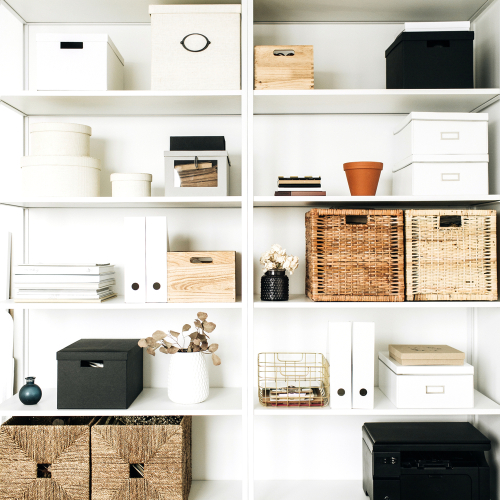
Why Home Organisation and Decluttering Matters in London
Living in London is an exciting experience, but it can also be quite hectic and overwhelming. With a fast-paced lifestyle and limited living space, it’s easy for clutter to accumulate and for your home to become disorganized. Here are a few reasons why home organization and decluttering should be a priority:
1. Efficient Use of Space: Space is a precious commodity in London, and effective home organization can help you make the most of the space you have. By decluttering and organizing your belongings, you can free up valuable space and create a more functional and comfortable living environment.
2. Improved Productivity: Clutter and disorganization can be distracting and make it difficult to focus and concentrate. By keeping your home organized, you can create an environment that promotes productivity and allows you to be more efficient and effective in your daily tasks.
3. Reduced Stress: A cluttered and disorganized home can contribute to feelings of stress and anxiety. On the other hand, a clean and organized living space can promote feelings of calmness and relaxation. By decluttering and organizing your home, you can create a peaceful sanctuary where you can unwind and recharge. If you’re planning on moving, it’s also helpful to know everything is in its place for when movers like Cookson Removals come to pack up your belongings – a much more relaxed start for a new place.
4. Enhanced Well-being: The state of your home can have a significant impact on your overall well-being. A clutter-free and organized living space can promote a sense of satisfaction and contentment. It can also make it easier to maintain cleanliness and hygiene, which are essential for a healthy and happy life.
5. Positive Guest Experience: If you frequently have guests over, whether they are friends, family, or even potential buyers or renters, a well-organized and clutter-free home can leave a positive impression. It shows that you take pride in your living space and can make your guests feel comfortable and welcome.
By prioritizing home organization and decluttering in London, you can create a more enjoyable and fulfilling living experience. With a few simple strategies and a commitment to maintaining an organized home, you can transform your living space into a peaceful oasis in the midst of the bustling city.
Planning for Home Organisation
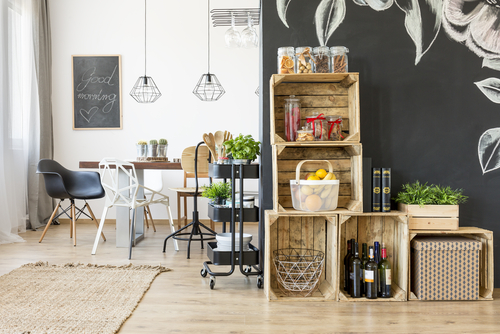
When it comes to home organisation and decluttering, having a plan in place is essential. By creating a structured approach, you can tackle the task more efficiently and achieve better results. Here are some tips for planning your home organisation journey:
Creating a Home Organisation Plan
1. Assess your needs: Start by taking a look at your home and identifying the areas that need attention. Make a list of the rooms or spaces that require decluttering and organisation.
2. Set priorities: Once you have identified the areas that need attention, prioritize them based on urgency or importance. This will help you stay focused and prevent overwhelm.
3. Allocate time: Dedicate specific time slots to work on each area of your home. Creating a schedule will help you stay consistent and make progress.
4. Gather supplies: Before you begin decluttering, gather the necessary supplies such as storage bins, trash bags, and labels. Having these items readily available will streamline the process.
Setting Realistic Goals for Decluttering
Decluttering can be a daunting task, but setting realistic goals can make it more manageable. Here are some tips for setting decluttering goals:
1. Start small: Begin with a small area or one specific category of items, such as clothing or books. This will help you build momentum and gain confidence as you see progress.
2. Break it down: Instead of tackling an entire room at once, break it down into smaller sections. For example, focus on decluttering one shelf or one drawer at a time.
3. Set a timeline: Give yourself a deadline for completing each decluttering task. This will create a sense of urgency and prevent procrastination.
4. Be realistic: Keep in mind that decluttering is a process and may take longer than expected. Set realistic expectations and be patient with yourself.
By following these planning tips and setting realistic goals, you can effectively organise your home and declutter your space. Remember to take breaks and celebrate your progress along the way.
Sorting and Decluttering Strategies
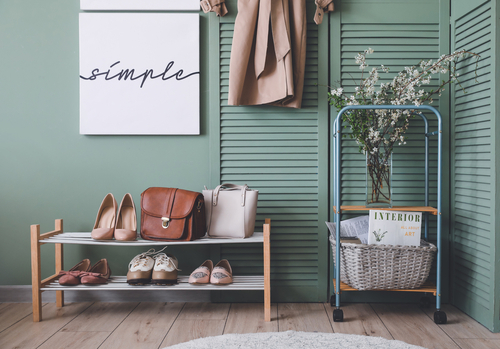
Decluttering and organizing your home can feel like an overwhelming task, especially in a bustling city like London. However, with the right strategies and mindset, you can transform your space into a clean and organized oasis. Here are some essential tips for efficient sorting and decluttering in your London home:
Tips for Efficient Sorting and Decluttering
1. Start with a Plan: Before diving into the decluttering process, create a plan of action. Identify which areas of your home need the most attention and prioritize accordingly.
2. Divide and Conquer: Sort your belongings into categories (e.g., clothes, books, kitchen items) to make the decluttering process more manageable. Take one category at a time and tackle it before moving on to the next.
3. Use the Three-Box Method: As you go through your items, use the three-box method: one box for items to keep, one for donations or selling, and one for trash. This method helps you make decisions about what to keep and what to let go of.
4. Minimalism Mindset: Embrace a minimalist mindset and be honest with yourself about what you truly need and use. Let go of items that no longer serve a purpose or bring you joy.
5. Consider Storage Limitations: Space is often limited in London homes, so be mindful of storage limitations. Only keep items that you have the space to store and make use of creative storage solutions, such as under-bed storage or wall-mounted shelves.
Utilizing Storage Solutions in a London Home
In a compact city like London, maximizing storage space is crucial. Here are some storage solutions that are perfect for London homes:
1. Multi-functional Furniture: Invest in furniture pieces that serve multiple purposes, such as ottomans with hidden storage compartments or bed frames with built-in drawers. These pieces help you make the most of limited space.
2. Vertical Storage: Utilize vertical wall space by installing shelves, hooks, or floating cabinets. This allows you to store items off the floor while creating a visually appealing display.
3. Under-stair Storage: If your home has a staircase, consider utilizing the space underneath for storage. Install shelving or drawers to maximize this often-underutilized area.
4. Closet Organizers: Make the most of your closet space by investing in closet organizers, such as hanging organizers, shoe racks, and stackable storage bins. These organizers help maximize vertical space and keep your belongings neatly organized.
5. Storage Units: If you find that you still have too many belongings for your London home, consider renting a storage unit. This allows you to store items that you don’t use frequently, freeing up valuable space in your home.
By implementing these sorting and decluttering strategies and utilizing storage solutions, you can create a clean, organized, and functional living space in your London home.
Room-by-Room Organisation Tips
Keeping your home organised and clutter-free can be a challenge, but with the right tips and strategies, it is achievable. In this section, we will explore room-by-room organisation tips to help you transform your London home into a clean and tidy space.
Organising the Living Room
The living room is often the heart of the home, where you gather with family and friends to relax and unwind. Here are some tips to keep your living room organised:
- Use storage furniture: Invest in furniture pieces that offer storage solutions, such as coffee tables with hidden compartments, ottomans with storage space, and bookshelves with adjustable shelves.
- Declutter your surfaces: Keep your coffee tables and side tables clutter-free by only displaying essential items. Use decorative boxes or trays to organise smaller items like remote controls and coasters.
- Implement a toy storage system: If you have children, designate a specific area or storage solution for toys. Consider using storage bins or baskets that can easily be tucked away when not in use.
Organising the Kitchen and Dining Area

The kitchen and dining area are spaces where organisation is key for efficient meal preparation and enjoyable dining experiences. Here are some tips to organise these areas:
- Sort and declutter your pantry: Regularly go through your pantry and remove expired items. Use clear containers or labeled bins to store dry goods such as pasta, rice, and snacks. Group similar items together for easy access.
- Optimize cabinet and drawer space: Maximize your cabinet and drawer space by using dividers and organizers. Store frequently used items in accessible locations, while lesser-used items can be stored in harder-to-reach areas.
- Create a meal planning system: Consider creating a meal planning system to help streamline your grocery shopping and meal preparation. Use a whiteboard or chalkboard to plan meals for the week and create a shopping list accordingly.
Organising the Bedroom and Closet

An organised bedroom and closet can create a sense of calm and promote better sleep. Here are some tips for organising these areas:
- Declutter your wardrobe: Regularly go through your clothes and donate or sell items that you no longer wear or love. Use storage solutions such as hanging organizers, bins, or dividers to keep your clothes, shoes, and accessories neatly sorted.
- Make use of under-bed storage: Utilize the empty space under your bed by using storage containers or bins to store out-of-season clothing or extra bedding.
- Create a designated workspace: If you have a small bedroom, consider creating a designated workspace using a compact desk or floating shelves. This will help separate your sleeping area from your work area, promoting better focus and relaxation.
Organising the Home Office
As more people work from home, having an organised home office is essential for productivity. Here are some tips for organising your home office:
- Invest in storage solutions: Purchase filing cabinets, shelves, or desk organizers to keep your paperwork, office supplies, and devices neatly stored. Use labeled folders and containers to categorize and store documents.
- Clear your workspace: Keep your desk surface clutter-free by only having essential items within reach. Use cable management solutions to keep cords and cables tidy and prevent tangling.
- Establish a filing system: Develop a filing system that works for you, whether it’s using physical folders or digital storage options. Sort documents by type or project to make retrieval easier.
By implementing these organisation tips, you can create a clean and clutter-free environment in every room of your London home. With a well-organised space, you can enjoy a more peaceful and functional living experience.
Sustainable Decluttering in London
In a city like London, where space is often limited and clutter can easily accumulate, home organisation and decluttering are essential to create a peaceful and functional living environment. However, it’s not just about getting rid of things – it’s also important to do so in a sustainable and eco-friendly way. Here are some tips for sustainable decluttering in London.
Donating and Recycling in the City
When decluttering your home, it’s important to consider the environmental impact of your actions. Here are some eco-friendly options for donating and recycling unwanted items in London:
1. Charity Shops: London is home to a wide range of charity shops where you can donate clothing, furniture, books, and other items. These shops not only give your unwanted belongings a second lease on life but also support various charitable causes.
2. Freecycle: Freecycle is a platform where you can give away items for free to people in your local community. It’s a great way to ensure that your unwanted belongings find a new home and are not simply thrown away.
3. Recycling Centres: London has numerous recycling centres where you can dispose of items that cannot be donated or reused. These centres ensure that materials are recycled and do not end up in landfills.
Remember to research and contact your local recycling centres and charity shops to ensure that they accept the specific items you wish to donate or recycle. Also make sure to hire a professional rubbish removal service to avoid fly-tipping. This will help maximize the impact of your sustainable decluttering efforts.
Eco-friendly Storage and Organisation Products
Once you have decluttered your home, it’s important to find sustainable storage and organisation solutions to maintain a clutter-free environment. Here are some eco-friendly products that can help you in this process:
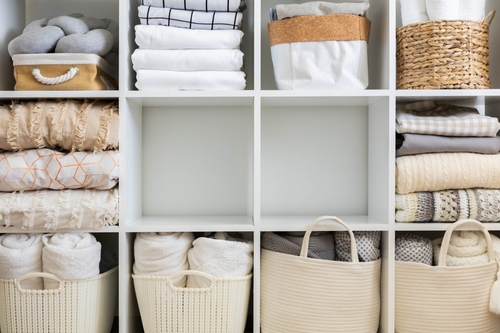
1. Reusable Storage Boxes: Instead of single-use plastic bins, opt for reusable storage boxes made from recycled or sustainable materials. These boxes are not only more environmentally friendly but are also sturdier and longer-lasting.
2. Bamboo or Wooden Organisers: Choose bamboo or wooden organisers for your drawers and shelves. These materials are renewable and biodegradable, making them a more sustainable option than plastic or metal.
3. Fabric Storage Bags: Use fabric storage bags for items like linens, clothing, or soft toys. These bags are washable, reusable, and do not contribute to plastic waste.
4. Sustainable Shelving Systems: When installing shelves, opt for eco-friendly materials such as reclaimed wood or bamboo. These materials have a lower environmental impact compared to conventional options.
By investing in these eco-friendly storage and organisation products, you not only contribute to a more sustainable lifestyle but also create a visually pleasing and clutter-free living space.
Remember that sustainable decluttering is an ongoing process. Regularly assess your belongings and adopt a minimalist mindset to avoid accumulating unnecessary items in the future. By decluttering sustainably, you can create a home in London that is both organized and environmentally friendly.

